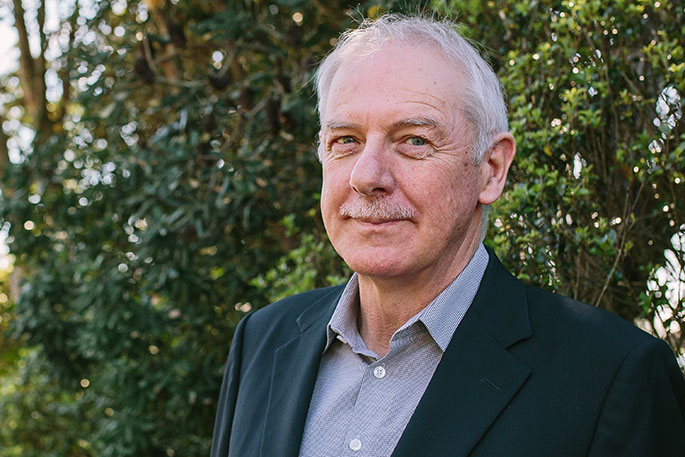A University of Waikato expert in energy law and mining says countries producing fossil fuels have no guarantee of a market for their products as the world addresses climate change.
Professor Barry Barton is putting forward a paper to international mining experts and leaders in Marrakesh next month, examining how emerging climate policies will necessarily affect the producers of oil, gas, and coal.
His paper at the International Bar Association's Biennial Conference of the Section on Energy, Environment, Natural Resource and Infrastructure Law forms part of a panel asking whether decarbonisation and climate policies will prevent developing countries benefitting from their mineral wealth.
'The panel question involves a degree of climate scepticism, so I have my work cut out for me,” says Professor Barton.
He says that international climate negotiation has always recognised that developing countries would need help in tackling climate change, and that they have an argument for justice in that it was mainly developed countries that, as they industrialised, created the climate problem in the first place.
The issue now however was that developed countries are removing coal from their electricity generation mix as a prime opportunity to reduce greenhouse gas emissions; and from a commercial point of view, coal has often become less attractive than natural gas or renewable energy, he says.
'The problem is with the consumption of fossil fuels rather than their production, and producers need to adapt to demand,” says Professor Barton.
He says the global market for coal is currently soft; the use of coal for power generation has declined considerably in North America and Europe, although it is still increasing in India and South-East Asia.
'Countries with coal or oil and gas as part of their mineral heritage need to adapt and re-evaluate, just as coal-importing countries are re-assessing their options,” he says.
Since the 1992 United Nations Framework Convention on Climate Change and more recently the Paris Agreement, large amounts of effort and funding have gone into helping developing nations advance economically while containing their greenhouse gas emissions, but there has never been any guarantee that fossil fuel producers would continue to have a market, he says.
New Zealand faces similar debate about our own oil, gas and coal industries.
Legislation that has restricted oil exploration has addressed the supply side of the market but not the demand side, which is where real change can be brought about, says Professor Barton.
He was disappointed that proposals to improve the fuel efficiency of vehicles has run into opposition.
'Motor vehicle rules for greenhouse gas emissions or fuel economy are standard in global markets, they cover 80 per cent of all light duty vehicles sold, and Australia and New Zealand are outliers in not having such rules,” he says.
Incentive schemes to make it easier to buy efficient vehicles are also common and have a good track record.
'If we are serious about reducing our emissions, these are some of the most fair, effective, and economical things we can do.”



1 comment
Save the emissions
Posted on 16-03-2020 19:16 | By Kancho
Well flying to Marrakesh may well not happen now with the lock down so there's a carbon emissions saving right there. I thought Australia still exports a lot of coal to Asia and America resumed coal use. We are of course so pure ( hypercritically ) we export all this polluting manufacture of almost everything to Asian countries so we can feel smug and pontifcate on climate change to poor countries who dearly want a slice of living standards and would happy burn coal and oil to get some of the action. Meanwhile keen on an electric car I found I could buy two petrol cars for same price and not worry about range of battery life. Go figure, why is there no reality to climate action in NZ?
Leave a Comment
You must be logged in to make a comment.